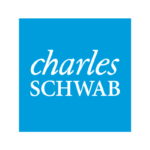With a 51.6% increase in account balances growth from 2011-2013, it’s clear that people are going crazy over Roth IRAs.
And for good reason. Experts agree that Roth IRA, and Roth IRA benefits, are one of the most solid investment strategies.
Why? Roth IRAs are only slightly different from their traditional counterpart, the IRA.
The biggest difference between the two is in how and when you get a tax break. With a traditional IRA, your contributions are tax-deductible in the year they are made. Contributions placed into a Roth IRA are safe from tax when withdrawn in retirement.
The general consensus among financial experts is that younger people should invest in a Roth IRA because of its benefits. However, Roth IRAs are an excellent investment vehicle for all ages. Let’s discuss why.
Roth IRA vs. Traditional IRA
Wondering which investment vehicle is right for you? Keep reading for the top Roth IRA benefits you should know about.
Tax-Free Income in Retirement
Once you start and continue to invest in a Roth IRA for years, you should build a sizable nest egg that you could provide you with a steady, tax-free source of income in retirement.
This benefit doesn’t stop at contributions. It also applies to money earned through decades of compounding interest.
The catch: you pay income tax on your contributions upfront. Uncle Sam has to get his money somehow.
One more rule to understand: distributions of earnings are subject to tax and 10% penalty unless held for 5 years or age 59 1/2 whichever is later.
Rising Income
Maybe you’re under 30. You’re not ready to discuss savings in retirement because that’s too far away from now. You don’t think the Roth is for you.
Wrong. The younger you are, the greater the possible benefits achieved with the Roth.
If you’re young, your income will most likely be higher when you retire than it is right now. The difference could be significantly higher. This is good because the greater the difference between those numbers, the more lucrative a Roth IRA will be for you.
Early Access to Your Money
What happens when your emergency fund needs an emergency fund?
In a perfect world, money put away for retirement stays there until it’s actually time to retire.
But life happens. Sometimes you need fast cash.
When you have to break into your savings, the Roth IRA has better withdrawal terms than the traditional one.
When you withdraw early from a traditional IRA, the withdrawal will be taxed by the IRS for income tax. There’s also a hefty 10% withdrawal penalty.
You can avoid this fiasco by investing in a Roth, as long as the money that is withdrawn comes from your contributions and not earnings.
Whenever and however you choose to withdraw early, it’s best to seek help from a financial advisor who is familiar with IRA early withdrawal rules.
More Beneficial to Your Heirs
Roth IRA is a useful tool if you want to leave your beneficiaries a legacy because the distributions are tax-free for your beneficiaries as well.
If you have a handsome amount of savings in a Roth IRA when you die, your beneficiaries are left with tax-free income. Basically, you are prepaying taxes for future generations. In the right scenario, your children and grandchildren could receive tax-free income for the rest of their lives.
As always, there’s a trade-off. When you contribute, you will pay taxes on that money. It all depends on your financial situation now and what you would like it to be in the future.
Lack of Ageism
Traditional IRA investors are required to begin withdrawals from their accounts at age 70 ½. You must take a distribution no matter if you want it or not. This is called required minimum distribution (RMD).
If you’re living comfortably at that age and forget to take your RMD, you will receive a 50% excise tax on the amount not withdrawn! Yikes.
The Roth IRA is RMD-free. If your name is on the account, you can let your earned money sit for as long as you are alive.
This is good for a couple of reasons. One, your investments continue to compound as long as they sit untouched. Two, you can avoid cashing-out investments when the market is down, losing your earnings.
With a Roth, you can continue to contribute to your account while earning income in old age. With a traditional IRA, you’re forced to stop contributions by the age of 70 ½. That’s a significant difference to be aware of.
High Earners Can Also Benefit
Sometimes, high earners can’t take advantage of investment vehicles like the Roth IRA. This is because the IRS has income thresholds. This significantly limits the size of investments that high earners are allowed to make.
Above a certain threshold, direct contributions to a Roth IRA are not allowed.
Don’t worry high earners, there’s a “back-door” Roth for you. Basically, you start with a traditional IRA and then convert that account to a Roth.
While converting, the IRS takes into consideration all of your pretax holdings to determine tax liability. So, this is also a sticky scenario in which you will want to consult your tax professional before pulling the trigger.
Greater Long-Term Benefit
Skipping a traditional IRA and opting for a Roth allows you to keep your contributions in a tax-free account for as long as you want.
Sure, with the Roth, you will be waiting longer for your savings to pay off. But it’s a no brainer for those who think they will end up in a higher tax rate later in life.
The Roth IRA is the ultimate benefit in retirement, and so it will almost always outweigh your other investment options. If you’re thinking long-term, the Roth IRA is for you.
If you’re thinking long-term, the Roth IRA may be for you.
Take Advantage of Roth IRA Benefits
So, now you know the pros and cons of Roth IRAs versus traditional IRAs. For most people, the clear winner is the Roth IRA.
Are you ready to take the leap and invest in a Roth IRA and reap the Roth IRA benefits?
We’re committed to navigating you to financial success. Contact us to gain access to some of the brightest minds in the financial industry.
This material was prepared by an independent third party. Material discussed is meant for general informational purposes only and is not to be construed as tax, legal, or investment advice. Although the information has been gathered from sources believed to be reliable, please note that individual situations can vary. Therefore, the information should be relied upon only when coordinated with individual professional advice. Links to external sites are provided for your convenience in locating related information and services. Guardian, its subsidiaries, agents, and employees expressly disclaim any responsibility for and do not maintain, control, recommend, or endorse third-party sites, organizations, products, or services, and make no representation as to the completeness, suitability, or quality thereof. 2019-83101 Exp 08/21



